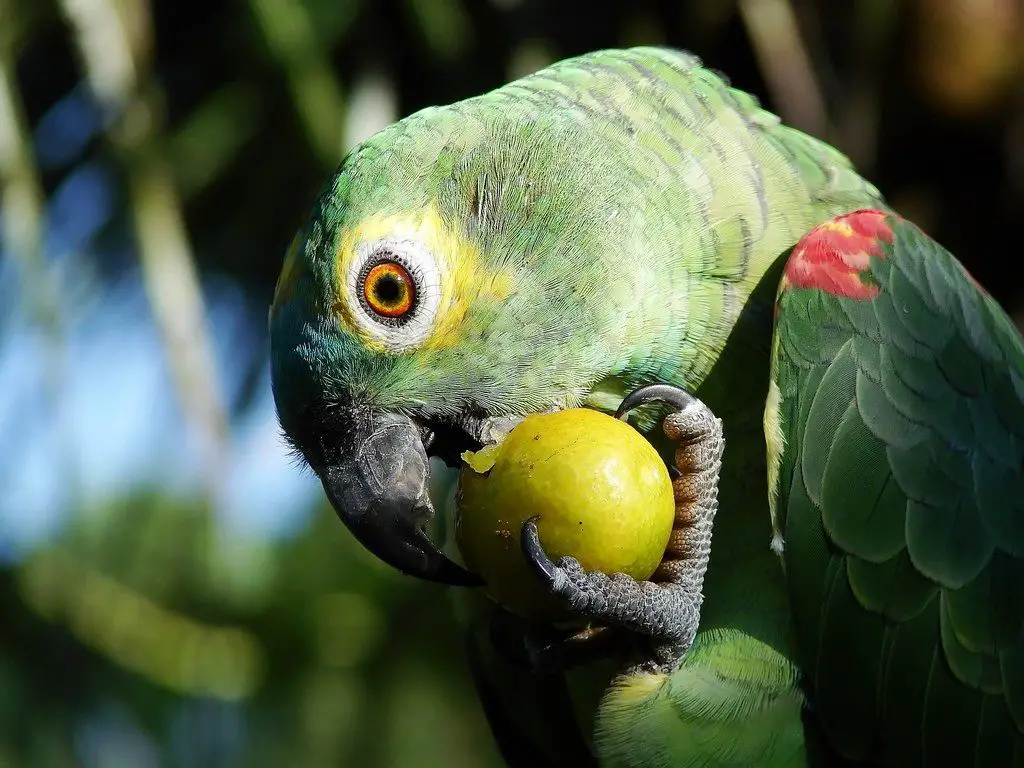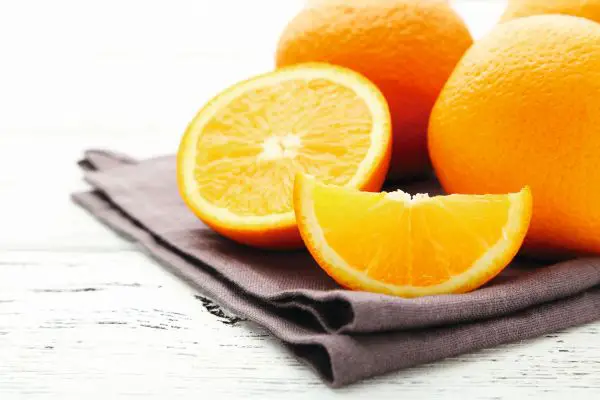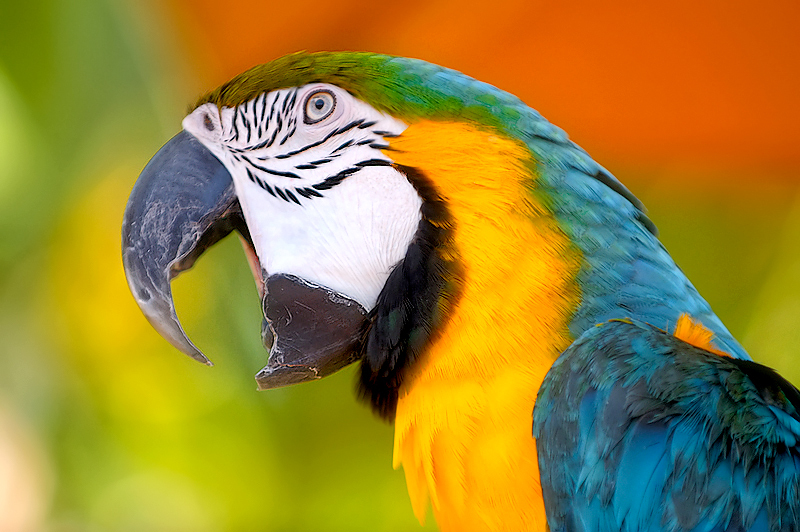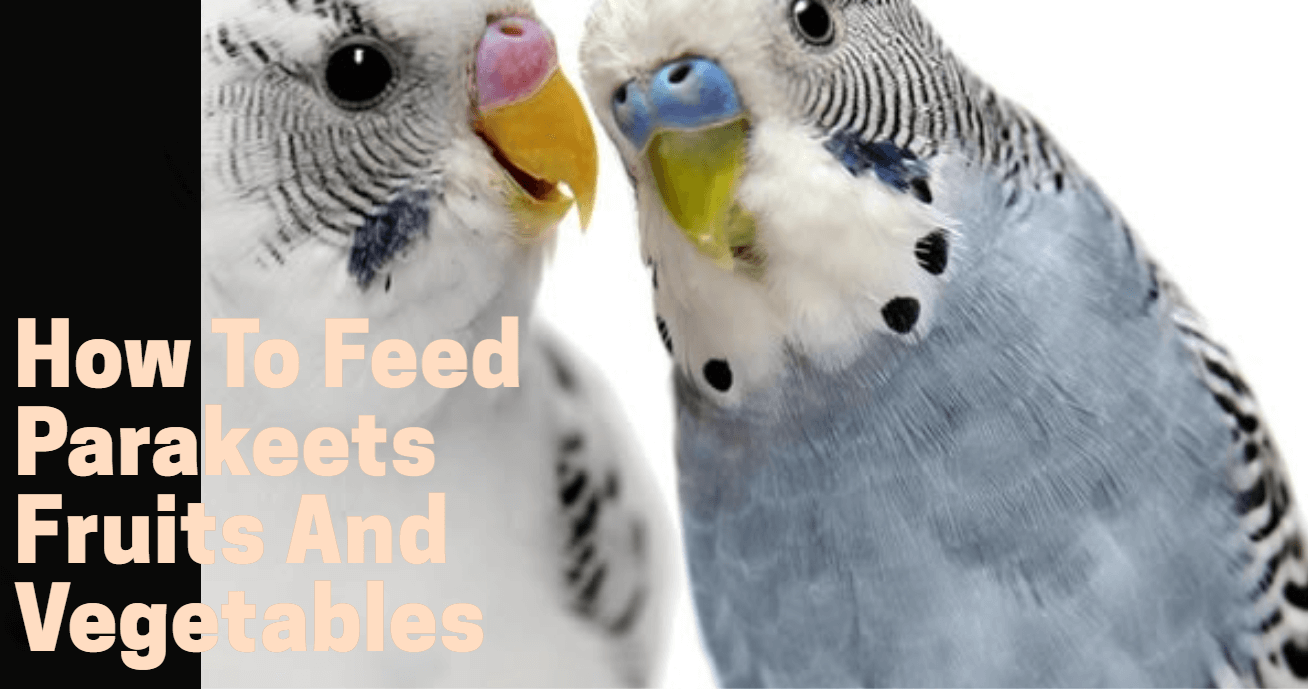
Whether you’re a first-time parrot owner or a seasoned enthusiast, this comprehensive resource will equip you with the knowledge to feed your feathered friends a variety of fruits and vegetables.
The Importance of Fruits and Vegetables in a Parakeet’s Diet
Fruits and vegetables play a vital role in a parakeet’s diet, providing them with essential nutrients, vitamins, and minerals. These wholesome additions offer numerous benefits to ensure the overall well-being of your feathered friends. Here are some reasons why fruits and vegetables are important for parakeets:
Nutritional Balance: Fruits and vegetables provide a wide range of nutrients that are essential for a parakeet’s health. They contain vitamins such as vitamin A, C, and K, as well as minerals like calcium, potassium, and iron. By incorporating a variety of fruits and vegetables into their diet, you can help prevent nutrient deficiencies and promote optimal health.
Fiber for Digestive Health: Fruits and vegetables are rich in dietary fiber, which aids in maintaining a healthy digestive system for parakeets. Fiber helps regulate bowel movements, prevent constipation, and promote overall gut health. It also contributes to a feeling of fullness, preventing overeating and potential weight issues.
Hydration: Many fruits and vegetables have high water content, which helps keep parakeets hydrated. Proper hydration is essential for various bodily functions and supports overall well-being. Offering hydrating fruits like watermelon and cucumbers can be especially beneficial during hot weather or in dry environments.
Mental Stimulation: Introducing a variety of fruits and vegetables into your parakeet’s diet provides mental stimulation and enrichment. The diverse colors, textures, and flavors of different produce stimulate their senses, preventing boredom and promoting a more engaging feeding experience.
Table: Nutritional Benefits of Fruits and Vegetables for Parakeets
| Fruit/Vegetable | Key Nutrients |
|---|---|
| Apples | Vitamin C, dietary fiber |
| Berries | Antioxidants, vitamin C, dietary fiber |
| Leafy Greens | Vitamin A, C, K, calcium |
| Carrots | Vitamin A, dietary fiber |
By offering a variety of fruits and vegetables to your parakeet, you can ensure they receive a well-rounded diet that supports their nutritional needs. Remember to wash all produce thoroughly and remove any seeds, pits, or skins that may be harmful to parakeets. Providing a balanced diet of seeds, pellets, and fresh fruits and vegetables will contribute to the long-term health and happiness of your feathered companions.

The Importance of Fruits and Vegetables in a Parakeet’s Diet
Fruits and vegetables play a vital role in a parakeet’s diet, providing them with essential nutrients, vitamins, and minerals. These wholesome additions offer numerous benefits to ensure the overall well-being of your feathered friends. Here are some reasons why fruits and vegetables are important for parakeets:
Nutritional Balance: Fruits and vegetables provide a wide range of nutrients that are essential for a parakeet’s health. They contain vitamins such as vitamin A, C, and K, as well as minerals like calcium, potassium, and iron. By incorporating a variety of fruits and vegetables into their diet, you can help prevent nutrient deficiencies and promote optimal health.
Fiber for Digestive Health: Fruits and vegetables are rich in dietary fiber, which aids in maintaining a healthy digestive system for parakeets. Fiber helps regulate bowel movements, prevent constipation, and promote overall gut health. It also contributes to a feeling of fullness, preventing overeating and potential weight issues.
Hydration: Many fruits and vegetables have high water content, which helps keep parakeets hydrated. Proper hydration is essential for various bodily functions and supports overall well-being. Offering hydrating fruits like watermelon and cucumbers can be especially beneficial during hot weather or in dry environments.
Mental Stimulation: Introducing a variety of fruits and vegetables into your parakeet’s diet provides mental stimulation and enrichment. The diverse colors, textures, and flavors of different produce stimulate their senses, preventing boredom and promoting a more engaging feeding experience.
Table: Nutritional Benefits of Fruits and Vegetables for Parakeets
| Fruit/Vegetable | Key Nutrients |
|---|---|
| Apples | Vitamin C, dietary fiber |
| Berries | Antioxidants, vitamin C, dietary fiber |
| Leafy Greens | Vitamin A, C, K, calcium |
| Carrots | Vitamin A, dietary fiber |
By offering a variety of fruits and vegetables to your parakeet, you can ensure they receive a well-rounded diet that supports their nutritional needs. Remember to wash all produce thoroughly and remove any seeds, pits, or skins that may be harmful to parakeets. Providing a balanced diet of seeds, pellets, and fresh fruits and vegetables will contribute to the long-term health and happiness of your feathered companions.
Selecting Safe and Nutritious Fruits for Parakeets
When choosing fruits to incorporate into your parakeet’s diet, it’s important to prioritize safe and nutritious options. Offering a variety of fruits ensures a well-balanced and enticing menu for your feathered friends. Here are some parakeet-friendly fruits and their key nutrients:
| Fruit | Key Nutrients |
|---|---|
| Apples | Vitamin C, dietary fiber |
| Berries | Antioxidants, vitamin C, dietary fiber |
| Grapes | Hydration, antioxidants, vitamins |
| Melons | Hydration, vitamins A, C, potassium |
| Oranges | Vitamin C, dietary fiber |
Apples: Apples are a popular choice for parakeets. They provide a good source of vitamin C and dietary fiber. Remove the seeds and core, and slice the apples into manageable pieces for easy consumption.
Berries: Blueberries, strawberries, and raspberries are packed with antioxidants, which help support the immune system. They also contain vitamin C and dietary fiber. Offer them whole or sliced, depending on your parakeet’s preference.
Grapes: Grapes are a hydrating fruit and a good source of antioxidants and vitamins. Cut them into smaller pieces to prevent choking hazards, and ensure they are seedless.
Melons: Melons like watermelon and cantaloupe are hydrating fruits with high water content. They are rich in vitamins A and C, which contribute to your parakeet’s overall health.
Oranges: Oranges are known for their high vitamin C content, which supports the immune system. They also provide dietary fiber. Offer small slices or segments, removing any seeds.
It’s important to introduce fruits gradually into your parakeet’s diet, and observe their preferences and any potential allergic reactions. Always provide fresh, washed fruits, and remove any uneaten portions after a few hours to maintain cleanliness. With a variety of safe and nutritious fruits, you can provide your parakeet with a colorful and flavorful diet that promotes their health and happiness.


Selecting Safe and Nutritious Fruits for Parakeets
When choosing fruits to incorporate into your parakeet’s diet, it’s important to prioritize safe and nutritious options. Offering a variety of fruits ensures a well-balanced and enticing menu for your feathered friends. Here are some parakeet-friendly fruits and their key nutrients:
| Fruit | Key Nutrients |
|---|---|
| Apples | Vitamin C, dietary fiber |
| Berries | Antioxidants, vitamin C, dietary fiber |
| Grapes | Hydration, antioxidants, vitamins |
| Melons | Hydration, vitamins A, C, potassium |
| Oranges | Vitamin C, dietary fiber |
Apples: Apples are a popular choice for parakeets. They provide a good source of vitamin C and dietary fiber. Remove the seeds and core, and slice the apples into manageable pieces for easy consumption.
Berries: Blueberries, strawberries, and raspberries are packed with antioxidants, which help support the immune system. They also contain vitamin C and dietary fiber. Offer them whole or sliced, depending on your parakeet’s preference.
Grapes: Grapes are a hydrating fruit and a good source of antioxidants and vitamins. Cut them into smaller pieces to prevent choking hazards, and ensure they are seedless.
Melons: Melons like watermelon and cantaloupe are hydrating fruits with high water content. They are rich in vitamins A and C, which contribute to your parakeet’s overall health.
Oranges: Oranges are known for their high vitamin C content, which supports the immune system. They also provide dietary fiber. Offer small slices or segments, removing any seeds.
It’s important to introduce fruits gradually into your parakeet’s diet, and observe their preferences and any potential allergic reactions. Always provide fresh, washed fruits, and remove any uneaten portions after a few hours to maintain cleanliness. With a variety of safe and nutritious fruits, you can provide your parakeet with a colorful and flavorful diet that promotes their health and happiness.

Fruits and Vegetables for Parrots: A Nutritional Guide
Feeding your parrot a well-balanced diet that includes a variety of fruits and vegetables is crucial for their overall health and well-being. These wholesome foods provide essential vitamins, minerals, and antioxidants that support their immune system, vibrant feathers, and overall vitality. Here is a list of fruits and vegetables suitable for parrots, along with their key nutrients and calorie content:
Fruits:
Apples:
- Vitamins: Vitamin C
- Minerals: Fiber, potassium
- Calories: Approximately 52 calories per 100g
Bananas:
- Vitamins: Vitamin B6, vitamin C
- Minerals: Potassium, manganese
- Calories: Approximately 96 calories per 100g
Grapes:
- Vitamins: Vitamin C
- Minerals: Antioxidants, potassium
- Calories: Approximately 69 calories per 100g
Oranges:
- Vitamins: Vitamin C
- Minerals: Fiber, folate, potassium
- Calories: Approximately 43 calories per 100g
Pomegranates:
- Vitamins: Vitamin C
- Minerals: Antioxidants, potassium
- Calories: Approximately 83 calories per 100g
Vegetables:
Carrots:
- Vitamins: Vitamin A, vitamin K
- Minerals: Fiber, potassium
- Calories: Approximately 41 calories per 100g
Broccoli:
- Vitamins: Vitamin C, vitamin K
- Minerals: Fiber, calcium, potassium
- Calories: Approximately 34 calories per 100g
Spinach:
- Vitamins: Vitamin A, vitamin C, vitamin K
- Minerals: Iron, calcium
- Calories: Approximately 23 calories per 100g
Sweet Potatoes:
- Vitamins: Vitamin A, vitamin C
- Minerals: Fiber, potassium
- Calories: Approximately 86 calories per 100g
Peppers (Bell Peppers):
- Vitamins: Vitamin C, vitamin B6
- Minerals: Fiber, potassium
- Calories: Approximately 31 calories per 100g
Including a variety of these fruits and vegetables in your parrot’s diet helps provide the necessary nutrients for their optimal health. It is important to offer them in appropriate portions and ensure they are fresh and washed thoroughly. Remember to monitor your parrot’s preferences and any potential allergic reactions.
Please note that the calorie content may vary slightly depending on the size and ripeness of the fruits and vegetables. Consult with an avian veterinarian or a certified avian nutritionist to determine the specific dietary requirements for your parrot, as individual needs may vary based on age, species, and overall health.
By offering a diverse range of fruits and vegetables, you can provide your parrot with a colorful and nutrient-rich diet that supports their well-being, longevity, and enjoyment of mealtime.
Frequently Asked Questions:
Q1: Can I feed my parakeet frozen fruits and vegetables?
A1: Yes, frozen fruits and vegetables can be a convenient and nutritious option for your parakeet. Thaw them before offering, ensuring they reach room temperature.
Q2: Should I wash fruits and vegetables before feeding them to my parakeet?
A2: It’s crucial to thoroughly wash fruits and vegetables to remove any pesticides or chemicals. Organic options can provide added peace of mind.
Q3: Can parakeets eat avocado?
A3: No, avocado should be avoided as it can be toxic to parakeets and other birds.
Q4: Can I offer my parakeet cooked vegetables?
A4: Parakeets prefer raw vegetables, as they retain more nutrients and offer a satisfying texture for their beaks. Cooked vegetables may be too soft for them.
Q5: How often should I offer fruits and vegetables to my parakeet?
A5: Offer fresh fruits and vegetables daily, ensuring they comprise around 20-30% of your parakeet’s overall diet.
Q6: Are there any fruits or vegetables that are harmful to parakeets?
A6: Some fruits and vegetables, such as onions, garlic, chocolate, and caffeine-containing foods, should be strictly avoided as they can be toxic to parakeets.
